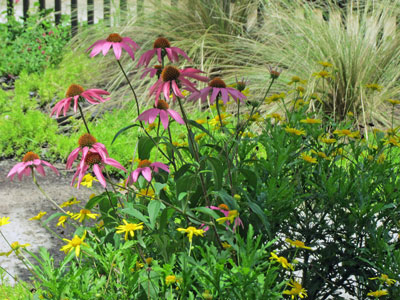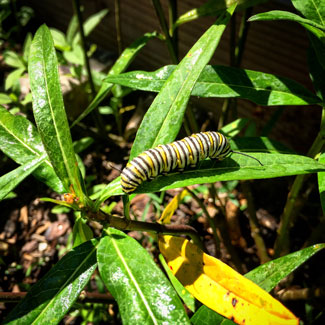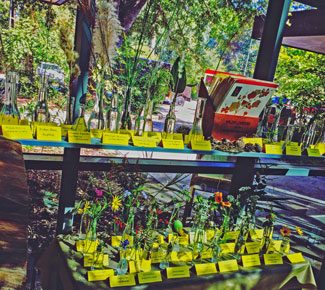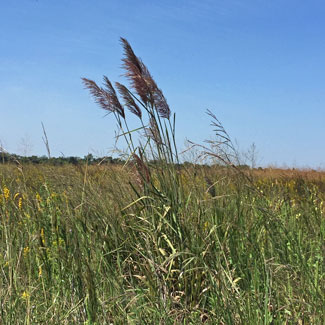
What You Can Do for Texas Native Plant Week – October 18-24, 2015
Reprinted from October 2015 Hyde Park Newsletter
Native Texas plants in gardens, landscaping and habitats help sustain nature at a time when the “wild and natural” are disappearing. These plants help sustain a healthy ecosystem by supporting a biodiversity of plant and animal life – a balance that nature intended. Around our homes and in our community, getting back to nature brings many benefits for families, the environment and the economy.
Texas Native Plant Week occurs every year during the third full week of October. It was conceived as a way to promote civic interest in preserving our state’s rich biological heritage for future generations through building greater awareness, use and knowledge of native plants in our local communities and schools. This annual event became a reality in 2009 by proclamation of the Texas legislature.
Key points to consider during Texas Native Plant Week are:
- Native plants are essential to a healthy natural environment that promotes insect diversity (especially our pollinators and butterflies) and sustaining life for native Texas birds and mammals.
- These plants are actually preferred by native birds and insects, providing food, cover and resting places required for them to flourish in your neighborhood.
- Native plants are less expense and require lower maintenance than conventional grass and bedding plants based on reduced usage of water, fertilizers, pesticides and their ability to promote deeper and healthier soils.

Being a Houston gardener for over 40 years, planting my yard in Hyde Park (Montrose area) with Texas native plants was a stimulating experience. I learned that there are many Texas native plants that can be easily substituted for conventional bedding flowers, shrubs and trees. I also learned that native plant gardening doesn’t necessarily mean “wild looking”. Through elimination of conventional lawn grass, my water bill was reduced more than 60% and my use of pesticides and garden chemicals is now almost nil. Best of all, I regularly see several kinds of native bees, butterflies and birds because there is something in bloom or going to seed nearly year around.
On the community level, native plant organizations encourage citizens to take time during Texas Native Plant Week to unite with their civic associations and schools to promote educating children about the importance of native grasses, trees and wildflowers and their role with the environment and wildlife. Simple ways to do this are to start a wildflower garden in your yard or tree lawn, in a public space in your community or at a local school. Seeds and plants are available through local native plant sales and seed programs from the Native Plant Society of Texas Houston (NPSOT) Chapter www.npsot.org/wp/houston, Houston Arboretum (www.houstonarboretum.org) and some nurseries.

Information on Texas native plants is readily available. The Native Plant Society of Texas Houston Chapter has an active Facebook page. Other resources include:
- Monarch Watch – monarchwatch.org
- Texas Parks and Wildlife (Wildscape Certification) – tpwd.texas.gov/huntwild/wild
- Monarch Larva Monitoring Project (Texas) – http://mlmp.org/Results/ResultsState.aspx?state=TX
- Joshua’s Native Plants – joshuasnativeplants.net
- Buchannan’s Native Plants – buchanansplants.com
There are more than ample reasons to “grow native”, but it is often difficult for individuals, communities and nurseries to get the process of native community gardening started. The NPSOT has recently initiated an effort to alleviate this situation with its Native Landscape Certification Program (NLCP). These classes provide individuals and professionals with the essentials for starting and sustaining native plant gardens and habitats.

NLCP classes teach best practices for native plant landscape and habitat introduction and preservation using a combination of classroom instruction and outside fieldwork at a local natural area. Sessions include instruction in native plant identification (including trees, shrubs, flowers and grasses), the uses and selection of native plants in landscaping, and identification of common exotic/invasive plant species important to control. While available in other parts of Texas currently, the Houston Chapter NPSOT will bring this program to Houston starting Spring 2016.

